00:00
Home / Her Work / Song Catalogue / I’ll Jump from the Battlements
I’ll jump from the battlements, I’ll end it all now;
and my love shouts: “For the love of God, catch him somehow!”
I didn’t see you yesterday or today,
I can’t take this torture, there’s just no way.
[I’ve vowed to wear black for the rest of my life
and weep at your heartlessness, for it cuts like a knife.
Come here to me, my little thing,
come cure my broken heartstring.
Why live at all if it’s not together?
Two hearts as one, one body and soul forever.
“Come here to me, my love”.
“I won’t, I’m young and shy as a dove”.]
Translated by Michael Eleftheriou
Από τα μπεντένια1 πέφτω, πέφτω για να σκοτωθώ,
κι η αγάπη μου φωνάζει: «Πιάστε τον, για το Θεό!»
Δε σ’ είδα σήμερα και χτες,
βαριά βαρούν οι μακαβιές.2
Τι με ωφελεί κι αν ζήσω και δε ζήσουμε μαζί,
δυο καρδιές να γίνουν ένα, ένα σώμα, μια ψυχή.
Δε σ’ είδα χτες και τα προχτές,
βαριά βαρούν οι μακαβιές.
[Απεφάσισα τα μαύρα να φορώ παντοτινά,
και να κλαίγω μέρα-νύχτα τη δική σου απονιά.
«Έλα μ’ εδώ, μικρούλα μου,
να γιάνεις την καρδούλα μου.
Έλα μ’ εδώ».
«Δεν έρχομαι,
είμαι μικρό και ντρέπομαι».]
1μπεντένι: έπαλξη κάστρου (τουρκ. beden)
2μακαβιά: ραβδί, ρόπαλο, μτφ. ραβδισμός. Από το βυζαντινό μαγκλάβι(ο)ν, με προέλευση τη λατινική λέξη man(u)clavium. Συναντάται επίσης σε μικρασιατικά ιδιώματα της Ιωνίας και το ρήμα μαχλαβίζω ή μαγλαβίζω: βασανίζω, τυραννώ.
Couplets of unfulfilled love, erotic despair, and unrequited longing, set to the nine-beat rhythm of the karsilamas, the “face-to-face” dance. The lover is desperate: his beloved refuses to yield to his love. She remains indifferent, yet only she can release him from the impasse in which he finds himself. The incurable bitterness of rejected love is expressed aphoristically and with great artistry in every image the lyrics evoke.
Theodor Kondaras (2022)
Live recording from the concert Songs of Asia Minor with Domna Samiou, held on 8 March 2005 at the Megaron —
the Athens Concert Hall. Domna Samiou learned the song in 1963 from 63-year-old Athanasia Dalaka, a refugee from Baindiri in Ionia — the village her own parents had come from.
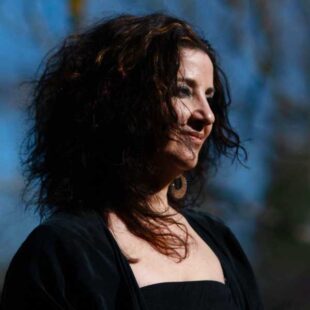
Singers
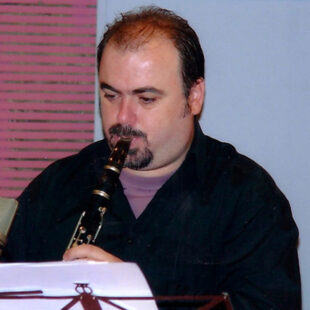
Clarinet
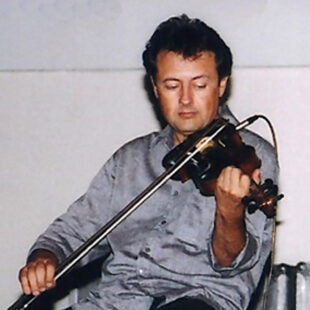
Violin
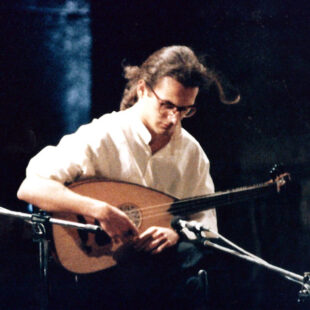
Constantinopolitan lyra

Goblet drum
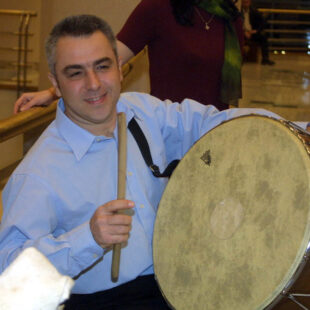
Bendir (frame drum)